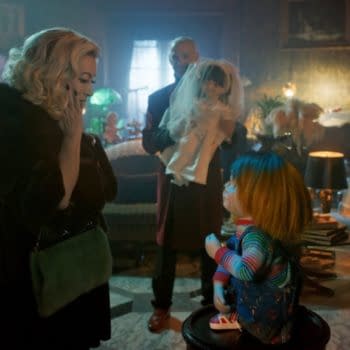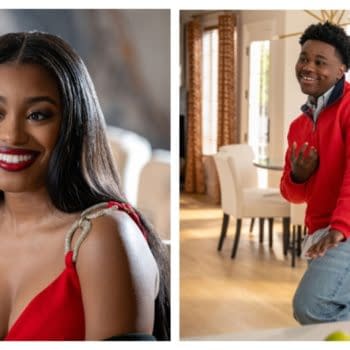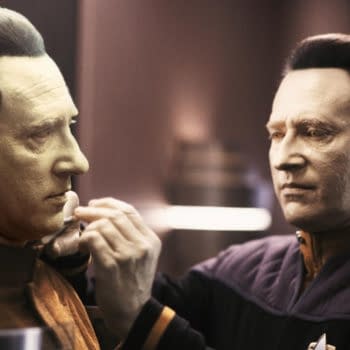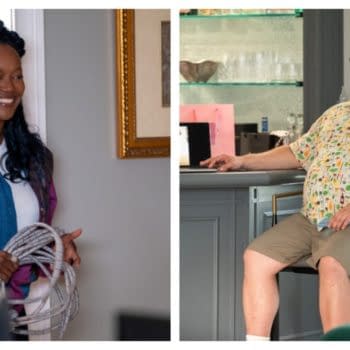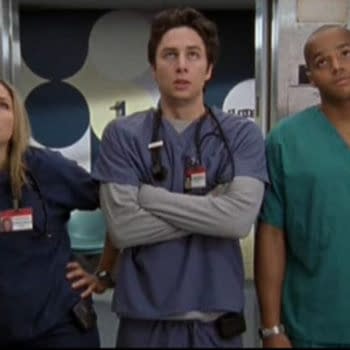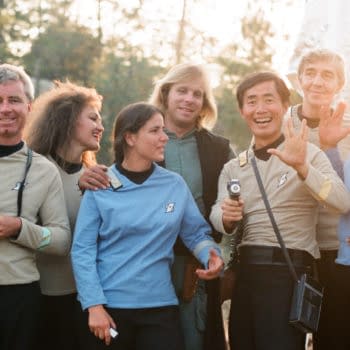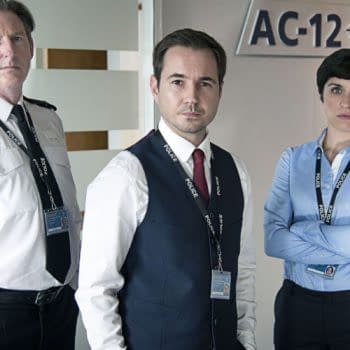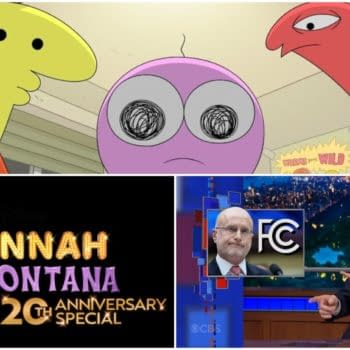Posted in: Game Of Thrones, HBO, Review, streaming, TV | Tagged: Emma D’Arcy, Eve Best, HBO, house of the dragon, matt smith, olivia cooke, paddy considine, Review, Steve Toussaint
House of the Dragon Season 1 Sought to Build a Better Game of Thrones
After Game of Thrones, fans were ready to hit the big reset button on Westeros after what many found to be a lackluster finish. The prequel House of the Dragon is the beneficiary of a clean slate and what would be an ideal budget to have to bring author George R. R. Martin's to light from day one. GOT creators David Benioff and DB Weiss worked amazing magic with what they had to work with from day one. HOTD creator Ryan Condal and showrunner Miguel Sapochnik picked up where Benioff and Weiss left off in an almost seamless fashion. The biggest key to making this work started at the top with Paddy Considine and Matt Smith, playing the respective male Targaryen leads in King Viserys I and Prince Daemon. The female leads in Princess Rhaenyra Targaryen and Queen Alicent Hightower would be played initially by Milly Alcock and Emily Carey, with Emma D'Arcy and Olivia Cooke wrapping up the season as their older counterparts.
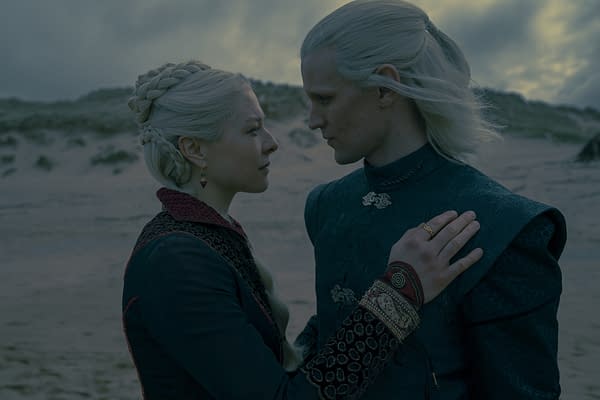
To start with Considine, his Viserys does give similar Shakespearean vibes to Mark Addy's King Robert Baratheon from GOT season one. Internal strives are largely controlled as his decision to make Rhaenyra his heir early on instead of his brother Daemon or his surviving male heir in his son Aegon II Targaryen (Tom Glynn-Carney) drew controversy with those fierce in the traditional ways. The worst it got during his reign was that he deposed his initial Hand in Ser Otto Hightower (Rhys Ifans). It was largely a formality since he eventually comes to serve the position again before the season finale. Unlike Addy or Sean Bean's Ned Stark, there isn't anything dramatically leading up to his fate. It's what happens after that was shocking.
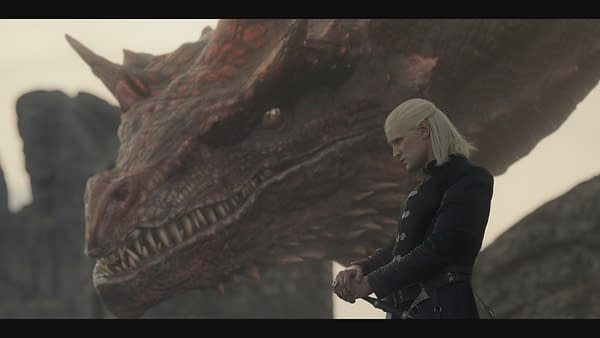
Smith's Daemon is largely a self-absorbed narcissist, which, naturally, fans eat up from his palm. While conniving, he is fiercely loyal to Rhaenyra, developing some devilishly fun chemistry. The show did tease some nuance and vulnerability during Alcock's final episodes. Not that Smith's character needs it, but it would be interesting going forward what the show has plans for him entering season two and beyond as "Dance of the Dragons" takes place. If there was a gripe I had, is that I didn't understand the fickle nature of casting older and younger actors in the same roles from adolescence to adulthood. If Alcock and Carey played the younger counterparts of D'Arcy and Cooke, why couldn't they cast another actor to play a younger Daemon? They also put the 49-year-old Considine in elderly age makeup instead of casting an older actor for Visery's final years.
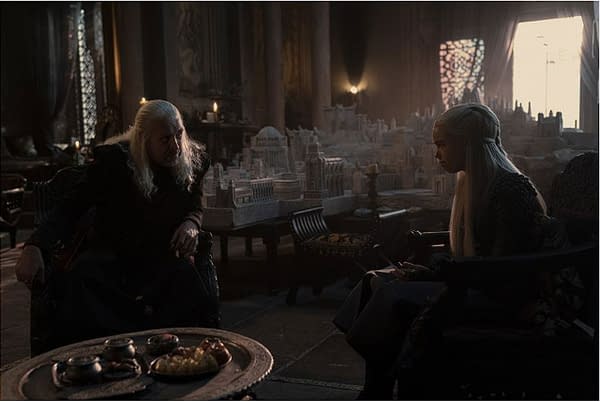
When comparing Alcock and Carey's performances with their older counterparts, there seems to be more of a dramatic shift in how their characters' friendship has changed over the years. Alcock and Carey's Rhaenyra and Alicent seemed much closer even as the events of the series play out as Alicent marries Rhaenrya's father bearing his children while Rhaenyra suffers the pushback from being named heir. By the time it comes around to D'Arcy and Cooke's turn, there's a lot more passive-aggressive tension between the characters as that line of succession continues to act as that 400 lb gorilla in the room.
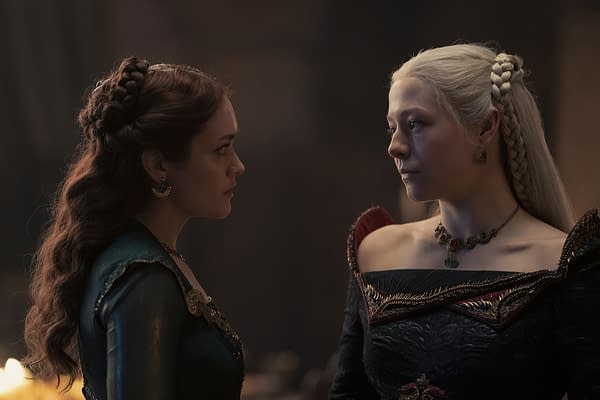
The way things were handled leading up to the season finale was surprisingly restrained, given the franchise's history of malaise and destruction. There were several moments of bloodshed on GOT, but HOTD's approach was largely confined to its few skirmishing scenes and the season's signature wedding scene narrowly compares to the red and purple weddings. Even when you dive into the shocking deaths, most weren't the game-changing ones from its predecessor. Granted, it's an expanding ensemble cast, and the focus spans generations. Entering the season finale "The Black Queen," there was a bit of foreshadowing among Rhaenyra and Alicent's children previously that most could have predicted (even without reading the book), leading to that shocking climax.
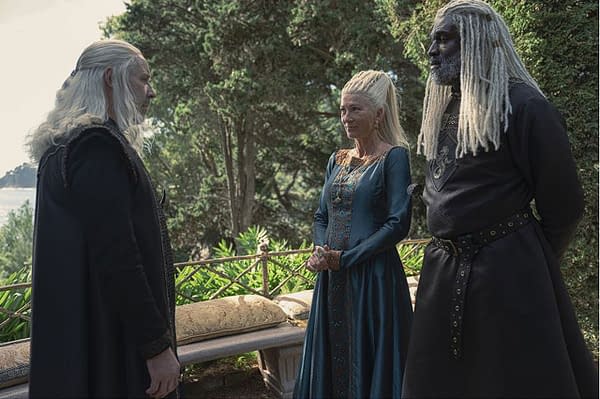
As far as the supporting roles, there were a few standouts like Steve Toussaint's Lord Corlys Velaryon (aka The Sea Snake), who's on par with Considine as far as stage presence and wouldn't let anyone push him around. Toussaint brings notoriety to House Velaryon as Considine did for Targaryen. Equally stoic is Eve Best's Princes Rhaenys Targaryen, who's the Sea Snake's wife and one-time heir to the iron throne. One figure I see with vast potential is Ewan Mitchell's Aemond Targaryen, who, for those keeping a score at home, is the one who requires an eye patch due to an accident from a scuffle with Jacaeyrs Velaryon (Harry Collett). Aemon's ill temperament reminds me a lot of Harry Lloyd's Viserys from GOT season one. I see great potential for him as one of HOTD's greater villains in season two, and his inevitable duel with Daemon should it play out like in the book.
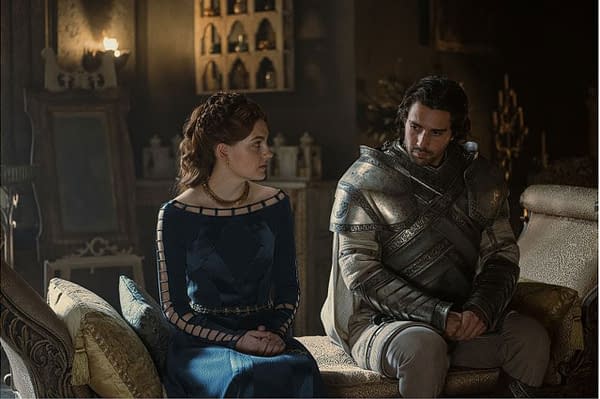
Another missed opportunity is that it would be nice to have some exposition about Craghas Drahar (Daniel Scott-Smith), aka the Crabfeeder, since he was one of the series' early antagonists, but what can you do given the series' ensemble and naturally bloated nature? Other honorable mentions go to Ifans, Fabien Frankel (Ser Criston Cole), and Graham McTavish (Ser Harrold Westerling). As far as how the season played out, the key to the HBO high fantasy series is still its actors, while the CG only serves to complement the talent. Sure, in the show's current timeline, we had far more dragons, but not once do they ever overwhelm the narrative of the story, which is why season one of House of the Dragon works so well.






